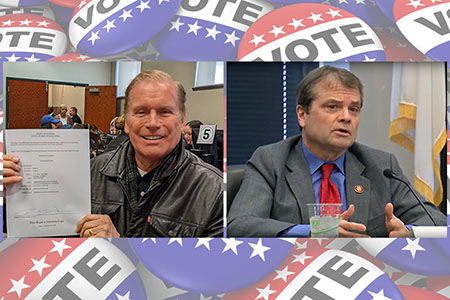
(Above) Looking south from 30 East Huron in this image from the website of 30 East Huron Condominium Association. Feb. 19, 2018 – Should condominium unit owners have the right to know the names and contact information of their neighbors – other owners in the building or within the condo or homeowners association? Effective January 1, the Illinois Condominium Property Act was amended to require exactly that. Under Public Act 100-0292, state law requires condo boards to provide names and addresses of individual unit owners, along with email addresses and telephone numbers. This private information is required to be provided only to owners in the building, not the general public. Consumer advocates fought for the amendment so condo owners would have access to information they need to communicate with their neighbors – and provide the necessary checks and balances to their association boards, management companies, and the attorneys that serve them. Apparently, powerful lobbyists for big condo boards, management companies, and condo lawyers were not happy with the change in the law and now are working to dismantle Public Act 100-0292. State Senator Kwame Raoul recently introduced Senate Bill 572, which strikes email addresses and telephone numbers from the law and would give every owner the right to opt out of disclosure.
But what about an owner who utilizes public ownership records and distributes that same information? Can he or she also be subject to a fine for sharing publicly available names and mailing addresses? “Senate Bill 572 aims to allow only condo board members to obtain condo owner contact information,” said Mike Pietrzak of Network of Association Homeowners and Advocates. “If it passes, the common owner would have no easy way to contact fellow owners if there is a problem with [the] current condo board, the management company, the association’s attorney. Only board members would be able to freely send information to the owners.” On February 13, at an initial legislative hearing on SB-572, seventy-five disgruntled Illinois condo owners and voters submitted witness slips to oppose the bill to amend the state law, according to Pietrzak. Only six witness slips were filed in favor of SB-572. To make matters worse, 2nd Ward Alderman Brian Hopkins and 42nd Ward Alderman Brendan Reilly have introduced an ordinance in Chicago to use the city’s Home Rule Authority to allow Windy City condo associations to opt out of the consumer-oriented state law provisions of Public Act 100-0292.
“It restores local condo board discretion and strengthens condo owner’s individual rights to privacy.” The proposal has been referred to the City Council’s Housing and Real Estate committee for consideration. Legislation feared by those who resist transparency, says consumer advocate Why is there consumer resistance to SB-572 and the Hopkins-Reilly ordinance? According to Sara Benson, a Chicago Realtor, author, condo owner, and consumer advocate, many condo boards, management companies, and association attorneys do not want owners to be able to communicate with each other – particularly if their services are questionable.
Benson, co-author with this writer of Escaping Condo Jail, a survival guide to condominium living, says there are “immense challenges” associated with living under the rule of an association-governed community. “Keeping unit owner’s contact information ‘a secret’ is primarily the agenda of large property management companies, the law firms that serve associations, and a few select groups of board directors that fear transparency,” she said. In a letter to Alderman Hopkins, Benson compared a condo directory to a parent directory for a school, a college classmates list, or a church or temple directory for worshipers. “Condo owners need to be able to contact fellow members in their association,” Benson wrote. “And just like any of these other organization directories or lists, a condo owner can limit the information that gets published.” If a member does not want an email address or phone number included, Benson said the owner simply needs to put in writing that they do not want that information used by the association. Benson also noted that real property ownership is a matter of public record. However, it may take hours to search assessor’s records and examine real estate tax bills of every owner in a condo building to contact owners, organize against, and overthrow a dysfunctional bully board. |







 Website:
Website: 








